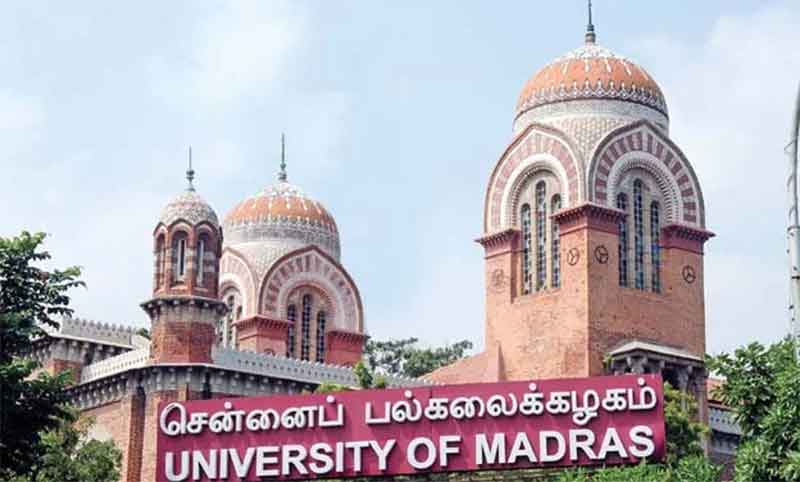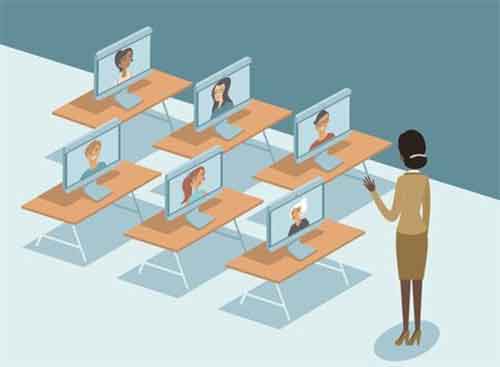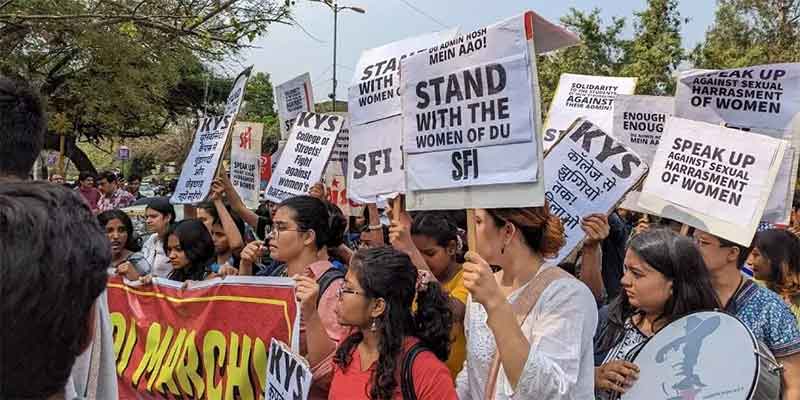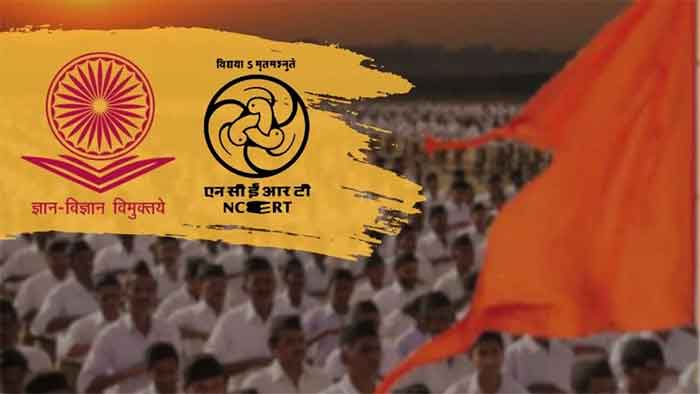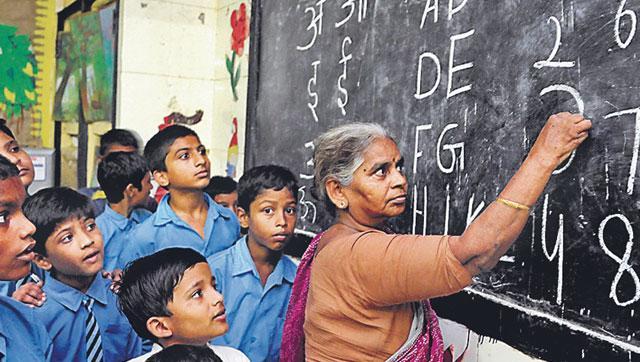
The discussion on the new education policy so far seems to have omitted the subject of text books. The quality of most text books so far is considered quite poor, especially of books in English language for English medium students… This has been going on year after year, the same mistakes are repeated in next editions.
Let me cite the example of the tenth standard English text book History and Political Science published by the Maharashtra state board of secondary and higher secondary education.
It is quite shoddy and it is enough to prove that merely teaching in English medium is not going to liberate and enlighten our students. If anything, such books can spread mis-information, ignorance.
Glaring mistakes all over. It says Khrushcev became the President of Russia. Two serious mistakes in one sentence. It ignores the whole existence of the Soviet Union and invents a new title for the secretary of the Communist party of the USSR.
One does not know whether to laugh or cry over this sentence in the chapter on civil disobedience. The sentence goes like this , verbatim – It is described that Gandhiji prepared handful of salt and castrated the British empire.
Then the students are told that China fought the French and then the Americans under Ho chi Minh’s leadership.
About the non-alignment movement, the book says Nehru, Tito, Nasser .’dared not to mix in any group” What is obviously meant was they wanted to keep aloof from both the warring groups.
It is embarrassing and depressing to read this. Cold war is mentioned in one place as one word and Bernard Baruch who coined the term is wrongly described as diplomat, another Baruch was a diplomat.
The question is what do highly paid bureaucrats in different states and teachers, who are now quite well paid, do ? And why are parents tolerating this ? We are suitably bothered about the quality of consumer products but not about the quality of text books our own wards ? Surely, intervention by well educated parents will help. How much time does it take to go through the text books. Even in the normal course, parents should go through them out of curiosity, at least those who have the time.
Those demanding exclusive use of English as a medium of English to Dalits in the name of empowerment show a woefully weak and distorted understanding of the language scene both in India and the world at large. Look at the staggering number of illiterate people in our country. It is 287 million, the largest in the world and it is rising. Even those classified as literate, many of them, can barely read or write
It is against this background that we need to look at the issue of medium of instruction. . Of course I personally love English and am all for its study, propagation.
The basic problem is that in India many of the poor know only dialects, not even the classified languages.I have often read about demands some poor people make is that let them learn in the local dialect. then a transition can be made to the language of the region and then English. Moreover, no language by itself is emancipatory. if dominant languages were emancipatory we would have emancipation through the dominant languages like English, French etc. in England, France and in the imperial colonies. What and how you teach is important.
Unfortunately much of our elite is monolingual , it knows only English, which is bad for itself but worse for the country. World over experience shows that children knowing two or more languages do better in life, it is also very easy to learn another language at a young age. Look at kids around you and you realise this. Also, UNESCO and numerous agencies and studies emphasise the importance of studying in the mother tongue initially. Teach English, but don’t humiliate Indian languages.
But our elite seems to have a mortal fear of Indian languages.
Shanta Apte, prominent Marathi and Hindi film actress of the old days, also did the major role of Savitri in the 1941 popular Tamil film of the same name along with M.S. Subbulakshmi.
Shanta meticulously learnt Tamil for the film and her role was praised in the Indian Express. She also sang Tamil songs in the film in her own voice. No dubbing.
In that sense the Indian film world is a melting pot of Indian languages, actors and actresses learning other languages to play roles.
Most people in India are also to a good extent bilingual but our monolingual elite just cannot understand the phenomenon, it seems.
Francis D’Britto, a Catholic priest and prominent Marathi writer, presided over the 93rd Marathi sahitya sammelan, literary conference, in Osmanabad in Marathwada earlier this year. The sammelan is a hugely attended annual , prestigious event.
And Jabbar Patel, well-known theatre and film director, has been elected president of the centenary sammelan of Marathi Natya (drama) Parishad. It could not be held earlier this year because of Covid. That is another big cultural event and this is a centenary year, no less.
Am mentioning this because there is a lot of confusion and ignorance in the country on the language issue.Some see the mother tongue or another Indian language as a medium of instruction almost as a calamity.
Both Fr D’britto and Jabbar have enriched Marathi culture and they have had initial education in Marathi and so many others who studied in the mother tongue have distinguished themselves in life in numerous disciplines.
Another interesting case is of Dr R.D.Lele, former medical director of Jaslok hospital, a leading hospital in Mumbai. His mother tongue was Marathi but since he was brought up in Hyderabad he studied medicine in Osmania university entirely in Urdu medium which was most accessible then. So many people there are bilingual, multilingual. And the better for it.
In Maharashtra Muslims speaking Marathi and in touch with non-Muslim progressive sections in society have been able to make a good impact both in literature and advocating social reform among Muslims. The Muslim Satyashodhak movement would have been unthinkable without the interface with Marathi.
It is also interesting to consider a review of Ayesha Jalal’s book on Pakistan . The review is written by S Akbar Zaidi who teaches history at Columbia university and the book is Struggle for Pakistan.
Titled How Not to Write History, the review criticizes Ayesha Jalal on various counts including the fact that while she quotes extensively from foreign sources, she does little to cite sources from other sources in Pakistan itself. It is a pity because Ayesha is such an outstanding scholar and the reviewer acknowledges that .
This is the centenary of Dr B.R. Ambedkar’s first Marathi periodical Mookanayak. It was entirely through his Marathi writing that Dr Ambedkar could reach the dalit masses and transform their lives so dramatically.
The importance of English is obvious. But why are some of our intellectuals so paranoid about studying Indian languages ?. I think this has something to do with class dominance and imperialism. There is a widely studied phenomenon of English language imperialism. The brutal way the English have treated languages in Scotland, Ireland and Wales needs to be noted.Some people are probably suspicious of languages we are not familiar with or don’t want to be familiar with and feel the people using them may be plotting against us.
My cousin Vidyagauri Gokhale has two doctorates one on Vijay Tendulkar, another in maths, she studied in Hindi medium in Jabalpur, taught in college Mumbai in English and now in her seventies she is learning Spanish.
The British themselves did wonderful research in local languages in the empire. Using language as a means of dominance is another matter.
The point is to enrich Indian languages with latest knowledge in the world. That is being done in Malayalam, they translate the latest and best from other languages in weeks of publishing in the West or elsewhere.
Our infrastructure is not equipped to impart education even in the mother tongue.
Fr D’britto has done a very good translation of the Bible from English into Marathi. Why we need a more liberal approach to the language issues is clear from the numerous trials people have faced centuries earlier in efforts to translate the Bible into different languages. Even the first translation into English was considered a heresy.
Diwakar Deshpande, a retired senior editorial writer in Mahaashtra Times, says My father was an Urdu medium student and then writer. My grandfather was pharsi Persian, expert., who grew up in Nizam state. In my childhood he used to tell me stories first in pharsi and then translate in marathi. Unfortunately I lost my connection with these languages.
An article in the Independent asked a pertinent question about English. How did this happen? How did a dialect, spoken by a backward, semi-literate tribe in the south-eastern corner of a small island in the North Sea spread, like some malign pandemic virus, across the globe? Should we feel guilty that our way of speaking is obliterating so many other tongues? Is it not a more sinister kind of colonialism than that which we practised a hundred years ago? Once we just took their raw materials. Now we invade their minds, by changing the primary tool by which they think: “their” language .
Yes, there is Hindi language imperialism and an extremely well documented English language imperialism. Both have to be opposed even as we admire the best in the two languages
Monolingualism has a long pedigree. Begins since the time of the Greeks who saw other language speakers as making mere sounds and called them barbarians.
The core English speaking countries like U.K., U.S.A. New Zealand Australia are mainly monolingual and now their limitations are out in the open.
Namibia’s language policy is ‘poisoning’ its children, says this headline.
English has been the medium of instruction in most of Namibia’s classrooms for nearly 20 years, but with teachers shown to be failing in competency tests, calls for change are mounting.
I attended the release of a book on the Sindhi community written by my former Times of India colleague Saaz Kothare, now Saaz Agarwal, at Yacht Club some years ago. It was full of upper class Sindhi families but not once did I hear anyone of them talking in Sindhi, it was all English. I think Sindhi is one of the most endangered among major languages in India. But a few of the speakers still still use expressions from old times, like for example if a lady is expressing surprise, she says Ya Allah. I heard this from a distant relative and I found that even well educated Sindhi was not aware of this. The reference to Allah comes from the growth of Sindhi in a Muslim majority area.
Vidyadhar Date is a senior journalist and author of a book advocating democratic street life and transport
SIGN UP FOR COUNTERCURRENTS DAILY NEWSLETTER


